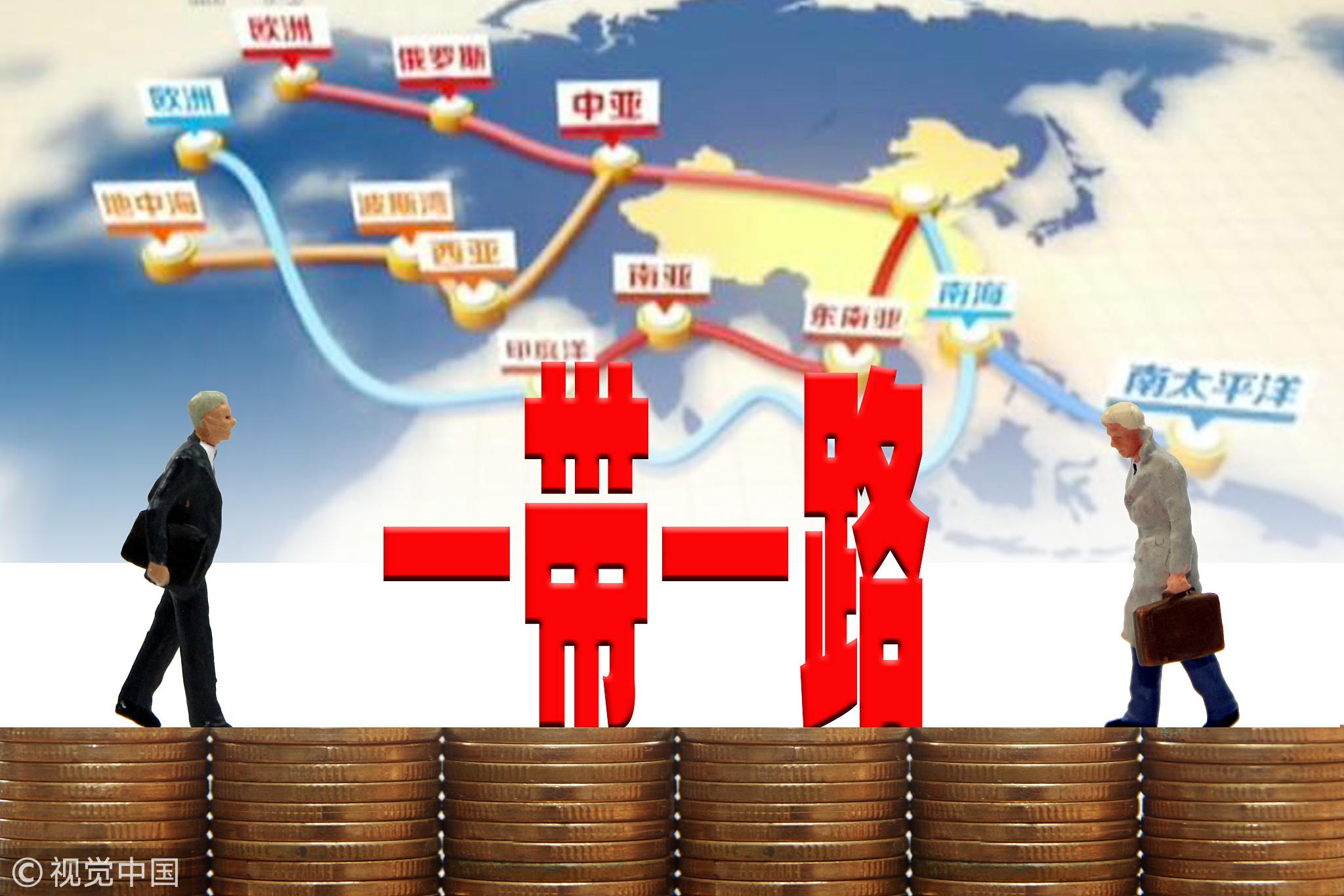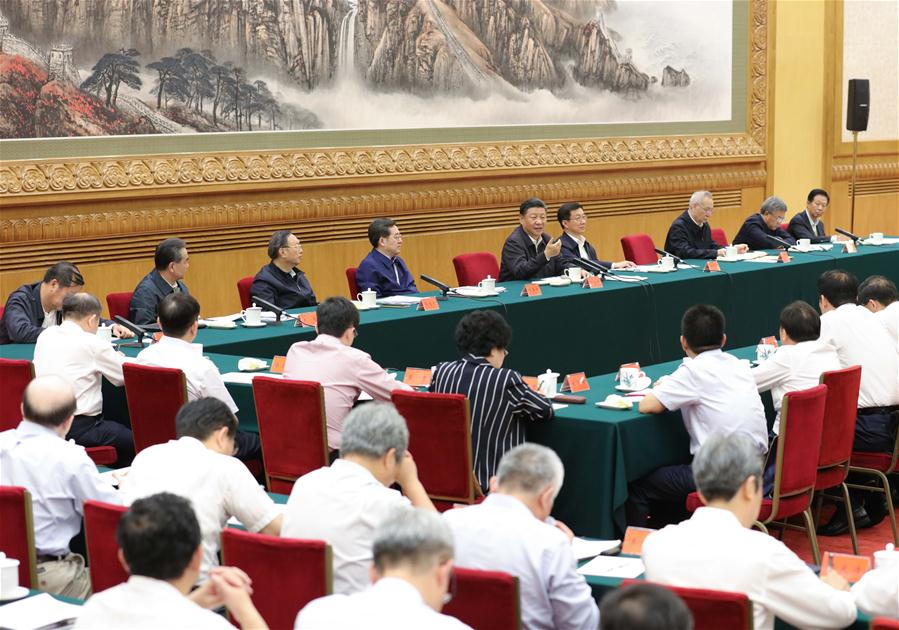
Opinions
15:29, 29-Aug-2018
Opinion: Will you embrace BRI in the next five years?
Updated
15:14, 01-Sep-2018
Jia Wenshan

Editor's Note: Dr. Jia Wenshan is professor at Chapman University, research fellow of the National Academy for Development & Strategy at Renmin University of China. The article reflects the author's opinion, and not necessarily the views of CGTN.
When I searched under the keyword "the fifth anniversary of the Belt & Road Initiative" in English at www.google.com, the first thing popping up was actually a statement before the US-China Economic and Security Review Commission of the United States Senate and a video of a hearing on "China's Belt and Road Initiative: Five Years Later".
It was presented by Dr. Jonathan E. Hillman, Fellow and Simon Chair in Political Economy, and Director, Reconnecting Asia Project, Center for Strategic and International Studies on January 25, 2018.
Upon more research, "Is China's Belt and Road working? A progress report from eight countries: Beijing's infrastructure push clouded by project delays and mounting debt" published by Nikkei Asia Review on March 28, 2018 was found quoting Hillman and his "Reconnecting Asia Project" and reveals the joint effort between the two parties to find fault with BRI.
Their goal was obvious: to badmouth China's BRI and create the international public opinion environment conducive to an international reception of the Japan-initiated, US-led "Indo-Pacific Strategy" with India and Australia as the other two members.
Such an opinion campaign finally led to US Secretary of State Mike Pompeo's unleashing of US President Trump's "Indo-Pacific Strategy" and subsequently a flurry of a negative media campaign against BRI staged or led by mainstream and populist media in the US and beyond.
While such an opinion campaign was largely biased against BRI with their national interest in mind, Hillman's statement is worth a careful scrutiny.
First, it confirms many Chinese claims about BRI to be valid and reliable with regard to the breadth, scope and size of the BRI such as its involvement of some 70 countries, two-thirds of the world's population, and size of the BRI investment ranging from 4 trillion to 8 trillion US dollars.
He also has made several significant conclusions:
1. "The BRI is the most ambitious geo-economic vision in recent history."
2. "In all these ways, when much of the West is looking inward, China is connecting with the world."
3. "The BRI is also the best-known, least-understood foreign policy effort underway."
4. "Ultimately, the best US response to the BRI is not a response at all, but a compelling US economic vision, resourced strategically and sustained over time."

VCG Photo
VCG Photo
In the same testimony and the statement, he describes how eager American private enterprises are in getting involved into BRI-related projects and analyzes the (mis)perceived hurdles they face. He also suggests that more and more countries are viewing China as the new leader of globalization and connecting their national development strategies with BRI.
He advises against the US effort to "replicate the BRI scale with federal spending", criticizes "the Indo-Pacific Strategy" as pure rhetoric and suggests that it be made operationalized to lure private funds onto infrastructure construction.
Echoing Hillman, Alyssa Ayres laments that 113 million US dollars in assistance pledged by Pompeo "will clearly not scratch the surface of the financing needs in the Indo-Pacific region. (The China-Pakistan Economic Corridor alone is a 62 billion US dollars investment pledged to date.)" in her op-ed for CNN.
Underlying the ambivalence of the authors is a kind of envy or jealousy for BRI, strongly suggesting that China be more transparent in order to involve more American companies in BRI projects and the US joins BRI for a share of the potential profit.
This kind of secret love and admiration for BRI among people of developed countries such as the US is prevalent, yet possibly repressed and censored by the current political atmosphere and the political correctness of the current US administration erroneously held towards China as one of its competitors and BRI as a tool of geo-economic competition.
To many people like Hillman, BRI does make a lot of economic sense, development sense, and governance sense, but somehow it does not meet the political correctness subsumed by some dominant political groups of developed nations such as the US which "are looking inward."
Such ambivalence must have been effectively addressed by Chinese President Xi Jinping who reassured the global community in his address at a symposium marking the fifth anniversary of the Belt & Road Initiative (BRI), in Beijing, China on August 27, 2018.

Chinese President Xi Jinping (C, rear), addresses a symposium marking the fifth anniversary of the Belt and Road Initiative (BRI) at the Great Hall of the People in Beijing, Aug. 27, 2018. /Xinhua Photo
Chinese President Xi Jinping (C, rear), addresses a symposium marking the fifth anniversary of the Belt and Road Initiative (BRI) at the Great Hall of the People in Beijing, Aug. 27, 2018. /Xinhua Photo
The following points of Xi's remarks are worth highlighting in persuading people like Hillman and Ayres shed their ambivalence decisively and openly advocate for BRI:
1. BRI is not a China-centric club, but an all-inclusive network of globalization, global governance, and global participation for mutual benefits;
2. BRI as a concept and structure will be further materialized to maximize real economic results for all while minimizing costs and risks;
3. BRI products and projects, be it hard or soft, must be enhanced with high quality measured against gold standard in contributing to the construction of a gold BRI brand.
In short, despite some initial volatility of some BRI projects, some lingering doubts about, resistance against, ambivalence towards BRI, a mere five-year-old concept and structure for a community of mankind with a shared future such as BRI is already beginning to yield some positive results for all.
With the next five years or ten years in sight, more fruits will be borne and harvested for enjoyment by people of all stripes and corners around the world, including young people like Hillman and Ayres, their significant others and beyond. No one, be it an individual, an organization, a country or a region, can afford waiting for five more years! Jump into BRI now to avoid lifetime regrets!

SITEMAP
Copyright © 2018 CGTN. Beijing ICP prepared NO.16065310-3
Copyright © 2018 CGTN. Beijing ICP prepared NO.16065310-3